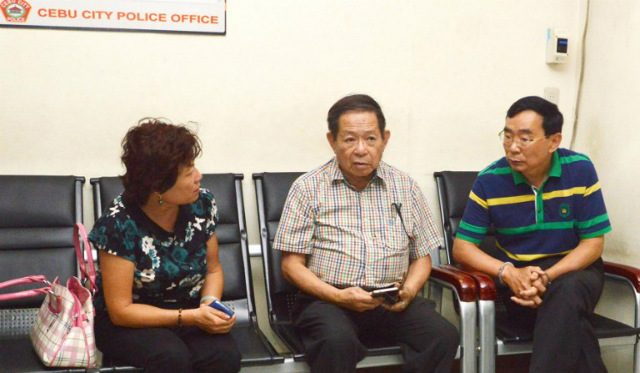SUMMARY
This is AI generated summarization, which may have errors. For context, always refer to the full article.

MANILA, Philippines – The Philippine Department of Foreign Affairs (DFA) on Friday, October 23, defended its decision to acknowledge “diplomatic immunity” for Chinese suspects in an attack that killed two employees of the Chinese consulate in Cebu.
Reacting to criticisms of his agency’s move, DFA spokesman Charles Jose asserted that the DFA is “the competent authority” to certify diplomats covered by diplomatic immunity.
Jose told Rappler that the DFA holds the records of “accredited diplomats in the Philippines,” and that the Philippines is a signatory to the 1961 Vienna Convention on Diplomatic Relations.
Referring to provisions of the Vienna Convention, Jose said in Filipino, “We need to follow those provisions.”
Article 31 of the Vienna Convention states, “A diplomatic agent shall enjoy immunity from the criminal jurisdiction of the receiving State.”
The exceptions include “an action relating to any professional or commercial activity exercised by the diplomatic agent in the receiving State outside his official functions.”
The DFA issued this statement after a lunchtime attack in Cebu on Wednesday, October 21, wounded Chinese consul general Song Ronghua and killed two of his staff members.
Jose on Thursday, October 22, said the Chinese suspects have immunity from prosecution and will be sent back to China.
‘Constitutionally infirm’ agreement
Explaining the DFA’s position, Jose added that the Philippines and China signed an agreement in 2009 to allow diplomatic immunity to cover even consular officers.
International law professor Harry Roque, however, said the 2009 agreement “is constitutional infirm.”
“Such an agreement, which provides for full immunity where international law only accords functional immunity, is a new national policy and requires therefore the concurrence of the Philippine Senate,” Roque said in a statement Friday.
“A DFA secretary has no power to limit the applicability of Philippine laws for crimes committed in the Philippines,” he added.
A Supreme Court (SC) decision on January 28, 2000, also sheds light on the issue of diplomatic immunity.
In this ruling, the SC denied the petition of an Asian Development Bank economist, Jeffrey Liang, asserting diplomatic immunity after he was charged with oral defamation before a lower court.
“First, courts cannot blindly adhere and take on its face the communication from the DFA that petitioner is covered by any immunity. The DFA’s determination that a certain person is covered by immunity is only preliminary which has no binding effect in courts,” the SC said.
The SC added that under the Vienna Convention, a diplomat enjoys immunity “except in the case of an action relating to any professional or commercial activity exercised by the diplomatic agent in the receiving state outside his official functions.”
The SC said, “The commission of a crime is not part of official duty.” – with reports from Agence France-Presse/Rappler.com
Add a comment
How does this make you feel?
There are no comments yet. Add your comment to start the conversation.